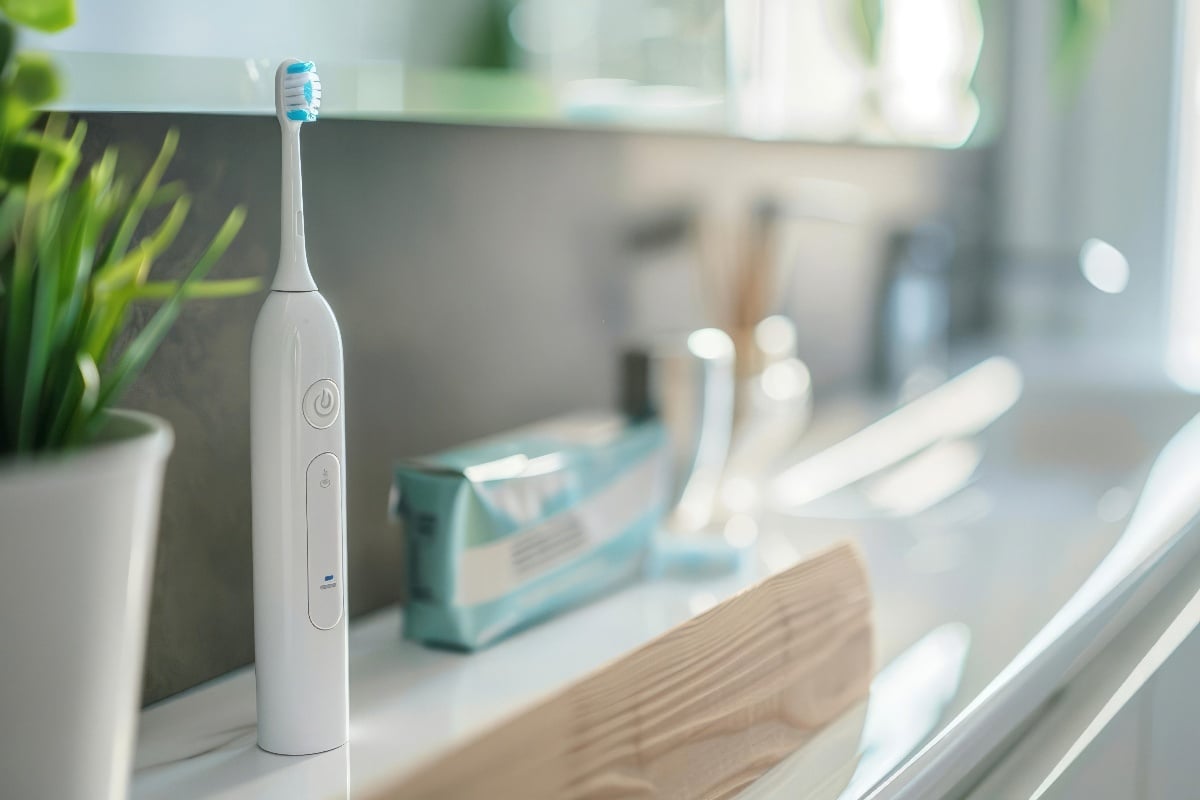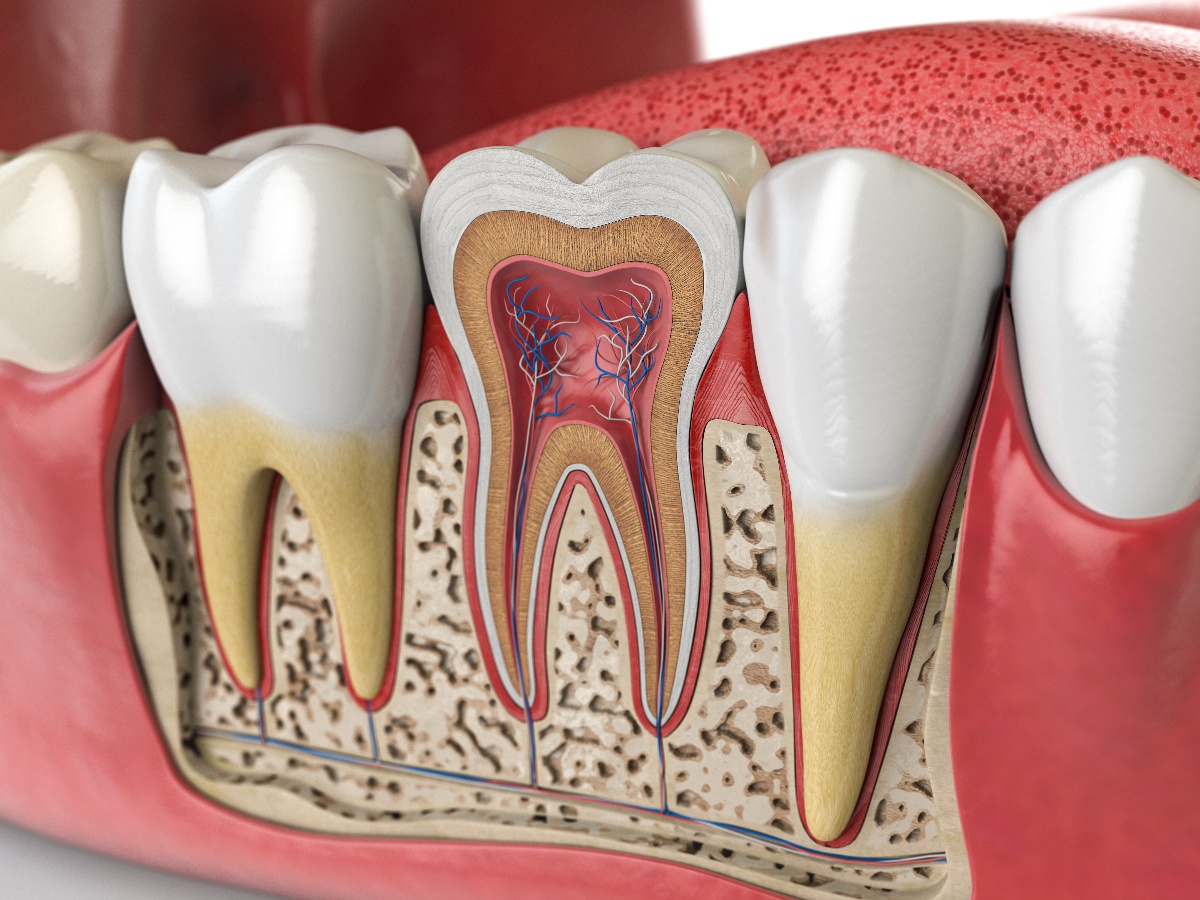You may have been asked by your dentist or dental hygienist, “Do you floss regularly"? There is a good reason for this concern by oral healthcare professionals–only about 30% of Americans floss daily! That leaves most people neglecting a crucial part of their oral health routine. While we all know we should brush twice daily, flossing is often overlooked as essential to oral health. Once convinced to floss, there is the common question of when to floss – before or after brushing. Or does it matter? It turns out that the order you choose could make a difference in the health of your teeth and gums.
The Importance of Oral Hygiene
Maintaining optimal oral hygiene is crucial for more than just a bright smile; it's vital to overall health and well-being. The practices of brushing and flossing play a central role in this, each contributing uniquely to dental health. Here are several reasons why consistent and correct oral hygiene is essential and stressed by your dentist:
Prevents Tooth Decay and Cavities
- Regular removal of plaque and food particles prevents the formation of cavities and tooth decay.
- Fluoride from toothpaste strengthens tooth enamel, making it more resistant to decay.
Combats Gum Disease
- Plaque buildup can lead to gingivitis, the early stage of gum disease characterized by red, swollen, and bleeding gums.
- Advanced gum disease (periodontitis) can result in tooth loss and has been linked to other health issues.
Contributes to Overall Health
- Poor oral health has been associated with various systemic diseases, including heart disease, diabetes, and respiratory infections.
- Bacteria from the mouth can enter the bloodstream, potentially causing inflammation and disease elsewhere in your body.
Prevents Bad Breath
- Good oral hygiene reduces and prevents halitosis (bad breath) by removing the debris and bacteria contributing to it.
- Regular brushing, flossing, and cleaning the tongue keep your mouth fresh and odor-free.
Boosts Self-esteem and Confidence
- A clean mouth and healthy teeth contribute to a brighter smile, boosting self-esteem and confidence.
- Good oral health supports clear speech and a more comfortable and functional bite.
Economic Benefits
- Preventive care, such as brushing and flossing and regular dental exams, can save money in the long run by avoiding costly dental treatments for issues like cavities, root canals, and gum surgery.
Maintaining diligent oral hygiene is vital to health beyond its cosmetic benefits. Daily brushing and flossing are foundational practices that can help keep you healthy and prevent various potential health issues.
Understanding Plaque and Its Effects
Plaque is a sticky, colorless film of bacteria that forms on teeth. Because it is the leading cause of several dental health issues, its daily removal is essential for prevention. Here's a closer look at plaque and its impact on oral health:
Dental Plaque Formation and Composition
- Plaque forms when bacteria in the mouth mix with sugars and starches from food to produce acids.
- This biofilm continuously develops on and between teeth, as well as along the gum line.
Effects on Teeth
- Tooth Decay and Cavities: The acids plaque produces can erode tooth enamel, leading to cavities.
- Tartar Buildup: If not removed regularly, plaque can harden into tartar (calculus), which is much harder to remove and requires professional dental cleaning.
Effects on Gums
- Gingivitis: Plaque causes this initial stage of gum disease. It results in red and swollen gums that bleed easily.
- Periodontitis: Untreated gingivitis can advance to periodontitis, which causes the loss of supporting bone around affected teeth. Severe periodontitis is one of the leading causes of tooth removal.
Systemic Health Concerns
- Plaque bacteria can enter the bloodstream through gum tissue, potentially affecting heart health, diabetes management, and other health problems.
- Inflammation caused by gum disease can contribute to other systemic health issues, such as cognitive decline, highlighting the importance of controlling plaque.
Plaque Prevention and Control
- Dental Check-ups: Regular visits to the dentist for professional cleaning are crucial for removing tartar and detecting early signs of gum disease.
- Regular Brushing and Flossing: These are the most effective methods for removing plaque and preventing buildup.
There is no debate about brushing twice daily for two minutes with a soft-bristled brush and flossing at least once daily to maintain oral health. However, there is disagreement on the order in which you brush and floss.
The Case for Flossing First
The sequence of oral hygiene practices, particularly whether to floss before or after brushing, has been debated among dental professionals. Flossing first is advocated by many experts for several compelling reasons, emphasizing its effectiveness in promoting a cleaner mouth and enhancing the benefits of brushing. Here's why flossing first makes a strong case:
Enhanced Plaque Removal
- Loosens Plaque and Food Particles: Flossing first dislodges food particles and plaque from between your teeth and under the gum line, areas that are difficult for a toothbrush to reach.
- Optimizes Brushing Effectiveness: By removing plaque initially with floss, brushing afterward can more effectively clear loosened debris and plaque from the mouth.
Increased Fluoride Exposure
- Better Fluoride Penetration: Flossing first can create more pathways for the fluoride in toothpaste to reach between teeth, potentially strengthening tooth enamel and more effectively preventing decay from these areas.
- Maximizes the Benefits of Toothpaste: With the barriers to tooth surfaces minimized, fluoride and other beneficial agents in toothpaste have a better chance of penetrating the spaces between teeth.
Support from Dental Studies
- Research Backing: Some studies suggest that flossing before brushing may be more effective in reducing interdental plaque and increasing fluoride retention in the mouth.
- Professional Recommendations: Some dental professionals and organizations recommend flossing first based on both clinical observations and the potential for improved dental health outcomes.
Improving Oral Hygiene Habits
- Encourages Better Flossing: Starting with flossing might promote a more thorough and mindful cleaning process, as it's not seen as a mere afterthought to brushing.
- Sets a Routine: For those who occasionally skip flossing, doing it first ensures that this crucial step is not overlooked.
This approach emphasizes the mechanical and chemical benefits of flossing first, highlighting the overall efficacy of this sequence on oral hygiene. The goal is to optimize the effectiveness of daily dental care routines, ensuring that both brushing and flossing contribute maximally to oral health.
The Case for Brushing First
While flossing before brushing has its advocates, there's also a compelling argument for brushing your teeth before flossing. This approach is supported by traditional routines and specific dental hygiene philosophies, focusing on the overall effectiveness of plaque removal and the benefits of fluoride. Here are the reasons why some experts recommend brushing first:
Immediate Reduction of Plaque
- Immediate Impact: Brushing first reduces the plaque and bacteria on your teeth and gums, instantly decreasing the risk of tooth decay and gum disease.
- Prepares Your Mouth: This sequence is believed to prepare the oral environment, making it more receptive to the thorough cleaning that flossing provides by already having reduced the bacterial load.
Fluoride Distribution
- Enhances Flossing Effectiveness: Brushing first leaves fluoride residue on the teeth, which may be spread and pushed into the interdental spaces during flossing, potentially increasing its protective effects.
- Promotes Remineralization: The fluoride from the toothpaste continues to act on the tooth surfaces even after brushing, offering ongoing protection against decay.
Habit Formation and Routine Compliance
- Strengthens Oral Hygiene Habits: For many, brushing first is an ingrained habit. Adhering to this routine ensures that brushing and flossing are completed effectively.
- Increases Likelihood of Flossing: Starting with the familiar action of brushing may encourage the completion of the oral hygiene routine with flossing, especially for those who might otherwise skip it.
Practical and Psychological Benefits
- Sense of Cleanliness: Brushing first can give an immediate feeling of cleanliness, which might be psychologically rewarding and motivate individuals to complete their oral hygiene routine with flossing.
- Ease of Use: For some, brushing first is more practical and fits better into their personal care routines, making it more likely that they will maintain consistent oral hygiene practices.
Diverse Dental Opinions
- Varied Recommendations: Dental professionals are divided on the issue, with some citing the benefits of fluoride retention and plaque reduction as key reasons to brush before flossing.
- Personalized Dental Advice: Many dentists advise patients to sequence flossing based on their oral health needs and preferences. This suggests that the best approach is the one that encourages consistent and effective oral hygiene.
The case for brushing first emphasizes the importance of fluoride application, many people's long-standing habit of brushing first, and the psychological and practical aspects of oral hygiene routines.
While the debate between brushing before or after flossing continues, the emphasis remains on the individual's commitment to both practices as fundamental components of dental care. This perspective underlines the need for a personalized approach to oral hygiene tailored to each person's habits, preferences, and specific dental health requirements.
Conclusion
Recent research supports flossing before brushing for the most effective plaque removal. However, the American Dental Association emphasizes that what is most important is not the specific sequence but the practice of regular and thorough flossing. Most dentists would agree with this recommendation and make it a matter of your choice.
Schedule an Appointment
To learn more about how Palmetto Dental Arts can help you optimize your oral health, call us or contact us online.





